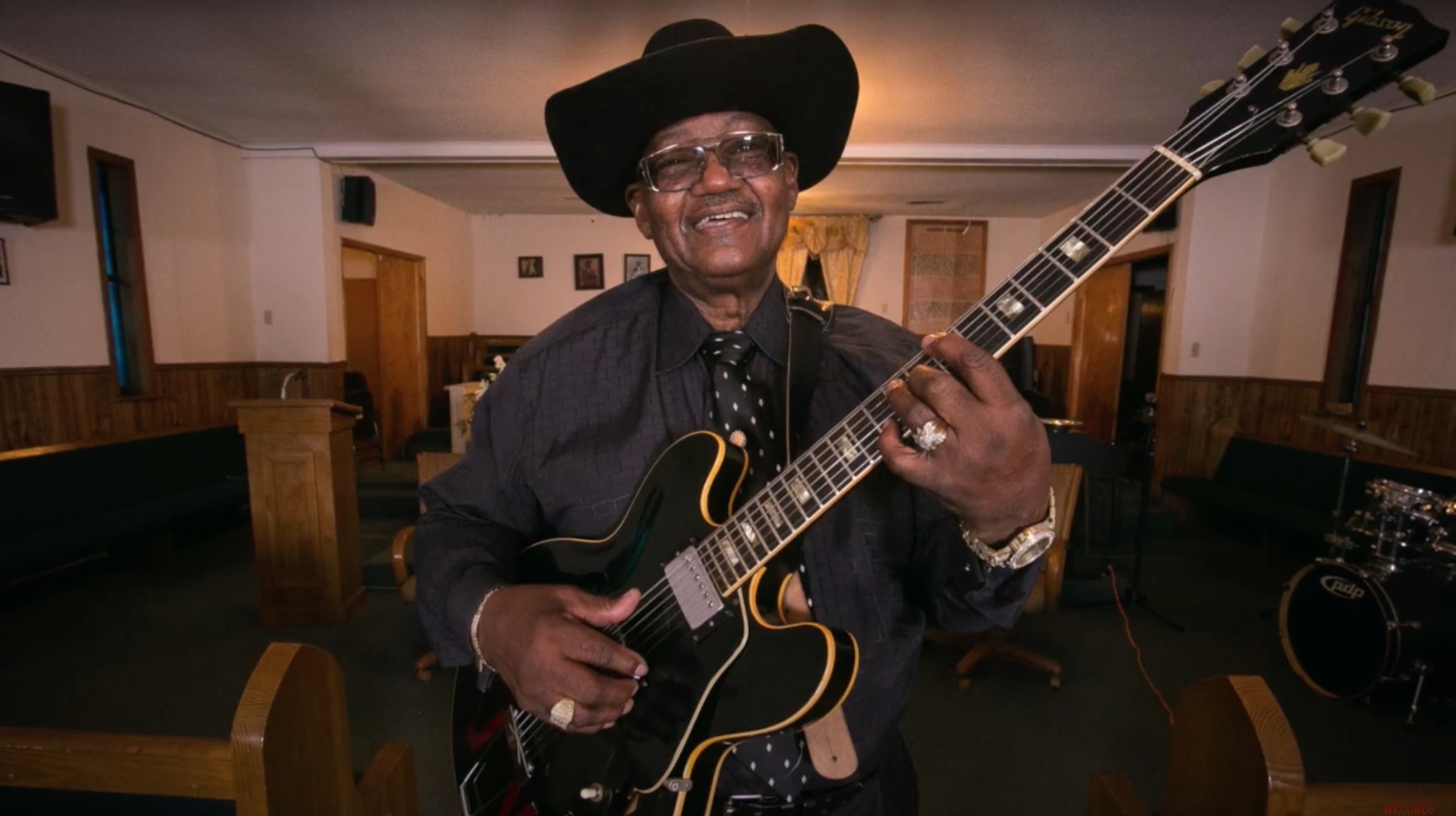Memphis blues artist Rev. John Wilkins dies aged 76
The singer and guitarist, who fused blues, soul and gospel music, had battled COVID-19 earlier this year

Memphis blues, soul and gospel singer and guitarist Rev. John Wilkins passed away on October 6 at the age of 76. Wilkins had battled COVID-19 and was hospitalized in April and May. He suffered kidney damage from the virus, but more recently it had been reported that he was recovering at home.
No cause of death has been given, though it is believed Wilkins succumbed to COVID-related complications.
Wilkins’ death was announced by his family on his official Facebook page: "It is with a heavy heart and great sadness to share that Rev John Wilkins passed away this morning.
“He loved God and his family and his congregation whether in church or on tour, and most of all he loved playing music with his daughters to the world. His music carries his love and spirit forward to us all. May he rest in love and power and peace."
John Wilkins was born in Memphis in 1943. His father, the Rev. Robert Wilkins, had recorded blues sides during the ‘20s and ‘30s. One of his songs, That’s No Way to Get Along, was later covered by the Rolling Stones on their 1968 album, Beggars Banquet, although by that time the elder Wilkins had reworked it as a gospel tune titled Prodigal Son.
John Wilkins learned to play guitar as a child and began performing with his father. “I remember when he was going to churches, I’d have my little guitar and I was right there on the stage and every time he’d get up, then I’d get up,” he recalled.
Wilkins soon began singing with the M&N Gospel Singers, and also started doing session work at Memphis studios like Stax and Memphis Sound. In 1965 he played lead guitar on blues and soul singer O.V. Wright’s You’re Gonna Make Me Cry, and in the early ‘70s he recorded the album Where's The Road That Leads Home with the M&N Gospel Singers.
Get The Pick Newsletter
All the latest guitar news, interviews, lessons, reviews, deals and more, direct to your inbox!
He continued to tour with the Gospel Singers through the decade, but in the early ‘80s felt called to preach and became the resident pastor at Hunter’s Chapel in Como, Mississippi.
It wasn’t until 2010 that Wilkins recorded his debut album, You Can’t Hurry God. That album, a mix of blues, soul and gospel, included a cover of his father’s Prodigal Son.
Wilkins eventually picked back up on his musical career and balanced his duties as a minister with fronting a band that included his daughters as backup singers. He released his second album, Trouble, in September 2020.
A press release for the record said of the 11-track collection “[I]n a world once again riven with discord and division, like the Memphis of Wilkins’ youth in the 1960s, Trouble delivers passionate and confident musical performances with a message of hope that meets our present moment equal to the best music from that earlier era.”
In a 2011 interview with No Depression, Wilkins described his music as “gospel blues,” saying, “Some of my songs have a soul feeling and some of the music has a blues sound. But it’s all gospel lyrics. We call it ‘gospel blues’ and I’m trying to do something different from what everybody else is doing; I’m trying to do something that will satisfy everybody. A little for the old, a little for the young, and a little for the medium age.
“So far, on this tour, everybody’s really been pleased and they come to me saying how much they enjoy it. It makes me feel good when I know people enjoy what I’m doin’.”
Rich is the co-author of the best-selling Nöthin' But a Good Time: The Uncensored History of the '80s Hard Rock Explosion. He is also a recording and performing musician, and a former editor of Guitar World magazine and executive editor of Guitar Aficionado magazine. He has authored several additional books, among them Kurt Cobain: Montage of Heck, the companion to the documentary of the same name.
“I suppose I felt that I deserved it for the amount of seriousness that I’d put into it. My head was huge!” “Clapton is God” graffiti made him a guitar legend when he was barely 20 – he says he was far from uncomfortable with the adulation at the time
“I was in a frenzy about it being trapped and burnt up. I knew I'd never be able to replace it”: After being pulled from the wreckage of a car crash, John Sykes ran back to his burning vehicle to save his beloved '76 Les Paul











